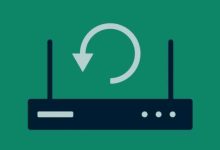.
It is very difficult for those who do not have any and among those who do, there are those who have only one, but there are also those who have two or even more email accounts.
Certainly, those who have only one email account usually manage very well and deal with all the situations in which an email address is needed and they must ask themselves: “Why do I need two…?”.
Understand the reasons and why if you are in the group that has only one account, you should consider changing this situation.
Why is email necessary?
It is unnecessary to explain to anyone who has an email address its usefulness and importance and that is not our purpose.
However, when we look at the current moment or even the beginning of the advance of the Internet, e-mail has always played a fundamental role, even though many services have emerged and in some situations, its use seems unnecessary.
It was like this with the first instant communication applications or messengers (MSN Messenger, ICQ, etc.), as it became even more pronounced due to the new generations that succeeded them (Skype, Facebook Messenger, etc.) and even due to those that were born with other proposals , like the hugely popular WhatsApp.
If before – back in the beginning of the Internet – e-mail was the main form of communication, this group formed by a mixture of software and service, made many of the situations that previously occurred by exchanging e-mail messages, unnecessary.
Thanks to this new generation of programs, it became more practical, simpler, faster to talk and even send files. Actually in real time and with a device that was now with you the whole time!
But even today and with many companies adopting WhatsApp – or Zap, if you prefer – as an alternative for communicating with both customers and other companies, email accounts still cannot be retired.
Nor in the personal scope, after all, the registrations we make on e-commerce sites require it and so do the app stores. It’s no different on the online gaming platform, nor on the forums we subscribe to. It is necessary for downloading a handout or rich content, as it is also in many social networks.
Although some think not, e-mail is still so important that it’s hard to remember anything you do on the Web that at some point doesn’t require you to have one.
By the way, have you ever asked yourself why the Internet doesn’t start to replace email, WhatsApp, or Telegram, or even any equivalent? It would be so much more practical, wouldn’t it?
It might be. But much less secure, too!
No, we are not saying that those mentioned or any other possible competitors are insecure… Nor that they are not. But that’s another chat.
The security here resides in the fact that they are “proprietary” resources, that is, they are not a Web tool, as is e-mail. These are services provided by companies that may change their privacy policies and terms of use, as well as commercial terms, at any time and without prior notice. They can also change the resources offered and even close their activities and when situations like these occur, what do you do?
Not with email. And we’re not talking about free e-mail services, which in a way are also subject to some of the above – and other – imagined possibilities.
Email as a service does not depend on Gmail, Outlook, or any other similar company to exist.
If you have your own domain, you can host it at many thousands of companies around the world and you will always have your email account. You’re the boss!
Once you have understood the subtle but important difference, that contrary to the “zaps of life”, e-mail is characteristic of the world wide web and not “property” of a company, let’s get to what probably brought you here…
Why is an email account too little?
Paradoxical as it may seem, mainly due to our final arguments just above, having only one email account, at times it can be almost like having no email at all.
Why?
Because there are a number of possible situations in which you need to have a second one:
- No matter how reliable the hosting your account is hosted on, no one can guarantee 100%. Even the internet giants have had problems;
- Not every website – in fact, few – is safe and reliable. Or seen in another way, in times when attacks, invasions and data leaks have become more and more frequent, having an alternative if your other account used in a registration was made vulnerable, is highly recommended;
- Among the ways to recover passwords (SMS, secret questions, etc.) for some e-mail services, there is the sending of a recovery link to another e-mail account, although this is not recommended in terms of security;
- Among other possibilities, the most important justification for having at least two email accounts, which we will discuss below: separating personal and professional issues.
Why have a personal and a professional email account?
Even if you are a liberal professional, self-employed, a freelancer or maybe even a digital nomad, what do you think is the impression produced by providing a company that you are in the presentation phase of your services with, a free email account ?
Or maybe you’re a photographer and you’ve just created an online portfolio, beautiful, modern and well illustrative of the work you do and your talents, but it contains an email like Gmail or Outlook.
In these and other similar cases, although these services have their paid versions and which can even be very good, they are usually associated with being free, as that is how they were born, developed and gained fame.
As a result, people are inclined to view its use as a bit amateurish or even a bit of sloppiness or lack of concern for detail in extreme cases. After all, many, even if they don’t say it, will think: “who these days uses free e-mail in business relationships?”
Like it or not, free e-mail services, as good as they are, are for personal use. We are not talking about using remote or external MX from these services, under their domain. This is something else and it is not apparent.
Having a professional email account, linked to your domain and another one restricted to personal matters, is also highly recommended, for the following reasons:
- Even if you have created several good email filters and have a good SPAM filter activated, receiving non-work content on the professional account is counterproductive. It’s even worse if it’s a company account and the IT sector has the possibility to see, through the service logs, the “subject” fields of received personal messages. It can be embarrassing to say the least;
- Also, in cases where the professional e-mail account is related to a company domain and not yours, there is an ethical issue, since it is a company resource and, therefore, must be used strictly for work matters;
- Disk space on a hosting account, which includes an account’s messages, is a valuable resource and should not be wasted on messages received from friends and relatives;
- Receiving potentially unsafe content on the work machine can be a big problem, especially when it comes to ransomware, but also other threats, such as phishing and various malware. By separating the personal from the professional, the odds are diluted. What you eventually get on one doesn’t affect the other and vice versa, unless both are accessed on the same device;
- There may be cases where you don’t want to, or even shouldn’t, provide a work email address, such as with some web services;
- You don’t want to see your inbox receiving countless work messages on your vacation, on your trip during the holidays, because you only have one account for everything;
- The administration of what is work and what is personal is also more complicated when you only have one account.
Anyway, the above list could be even longer, since the range of situations can vary enormously depending on each person, but it serves to illustrate that there are many justifications for not limiting yourself to a single account, be it personal or professional.
And we don’t even address issues where you have to provide an email address on an unknown site or service and where there is a suspected or likely security and/or privacy issue, it’s real.
But in such cases, a disposable email account is the solution.
Conclusion
Understand that having and managing at least two email accounts (personal and professional) is linked to security, privacy and effectiveness in the digital world.
.








